Overview
IDFA’s Regulatory RoundUP virtual conference returns this summer with a jam-packed lineup of current and former federal regulatory officials and regulatory experts from IDFA and other organizations serving the food and beverage and nutrition sectors. This is a once-per-year, can’t-miss event, for dairy and other food professionals that:
- inform the development and implementation of federal food safety, labeling, and nutrition policies;
- drive regulatory compliance with federal and state standards;
- perform quality assurance and quality control functions in facilities;
- and provide legal expertise and advice.
This year’s virtual conference features a fireside chat by Jim Jones, Deputy Commissioner of Human Foods with the U.S. Food and Drug Administration (FDA) who will dive into the reorganization and cultural transformation of the program; current program priorities; and emerging policies that will result in new regulations and guidance that will impact your businesses. The conference will be bookmarked by an interactive session with Michael Rogers, Associate Commissioner for Regulatory Affairs, at FDA who will discuss inspection modernization, compliance and recall trends, among other topics. Still other FDA experts will discuss how the results of foodborne outbreak investigations inform the agency’s prevention strategies.
Participants will also hear from the CEO of STOP Foodborne Illness who will share free tools for developing robust food safety cultures in food facilities; representatives from Consumer Reports and the Environmental Working Group who will provide insights into their top advocacy priorities; and experts from Hogan Lovells that will share trends in litigation and what we can expect regarding new policies and standards including front of pack nutrition labeling.
Register now to join us from 12:00 – 3:30 p.m. Eastern on July 9-10 for these exclusive sessions.
Fireside Chat: Jim Jones, Deputy Commissioner, Human Foods, U.S. Food and Drug Administration
In this new executive position, which reports directly to the FDA Commissioner, Jones leads the charge in setting and advancing priorities for a proposed, unified Human Foods Program (HFP), which includes food safety, chemical safety and nutrition activities. He has decision-making authority over all HFP entities, including resource allocation, risk-prioritization strategy, policy, major response activities involving human foods, and related Office of Regulatory Affairs activities. He currently oversees the leadership of the agency’s Center for Food Safety and Applied Nutrition and Office of Food Policy and Response until the proposed HFP reorganization is implemented. Jones came to the FDA with intimate knowledge of the foods program, having served on the Reagan-Udall Foundation’s Independent Expert Panel that evaluated the program in 2022. He has decades of leadership experience and a track record of forging partnerships among diverse segments of stakeholders and achieving dynamic results to improve public health.
Join us at Regulatory RoundUP to gain exclusive insights from Jim Jones that you can use for your regulatory planning in 2024 and beyond!
Agenda
| July 9, 2024 | Event | Speaker | Location |
|---|---|---|---|
| 12:00pm - 1:00pm |
Transformation of FDA Human Foods Program: What We’ve Accomplished and Future Plans
|
||
|
Join this interactive fireside chat with Deputy Commissioner Jones to hear firsthand about his vision and plans for the reorganization and transformation of FDA’s human foods program. This will be an interactive session with an opportunity for participants to ask questions. Moderated by: Roberta Wagner, Senior Vice President, Regulatory and Scientific Affairs, International Dairy Foods Association |
|||
| 1:00pm - 1:45pm |
NGO Perspectives and Priorities on Food Safety, FDA and the Food Industry
|
||
|
Join two leaders of the NGO community to hear their perspectives and priorities on food safety, FDA and the dairy and food industry. Speakers: Brian Ronholm, Director of Food Policy, Consumer Reports |
|||
| 1:45pm - 2:00pm |
Break
|
||
| 2:00pm - 2:45pm |
The Debate Around Front-of-Pack Nutrition Labeling (FOPNL)
|
||
|
FDA continues to press forward with a mandatory FOPNL scheme, signaling its intent to propose a rule in the Fall of 2024 and continues consumer research while pushing back on industry questioning its legal authority. In this session, experts raise concerns about FDA’s legal authority, experiences with FOPNL in other nations, and what the food industry would need to do to adapt. Speakers: Kris Sollid, RD, Senior Director of Nutrition Communications, International Food Information Council (IFIC) |
|||
| 2:45pm - 3:45pm |
Food Fights in the Courtroom – Annual Litigation Update
|
||
|
Food labeling decisions continue to be driven by litigation across the country and not FDA regulations. With each year, new court decisions help shed light on what consumers might reasonably expect from food companies. Hot topic issues include so-called “health halo” claims, claims about ingredients and nutrients, environmental claims, and more. In this session, Hogan Lovells Counsel Veronica Colas will share her expertise advising food companies on the current state of food labeling litigation, lessons your company can learn from these lawsuits, and how we might forecast the future of this area of litigation. Speaker: Veronica Colas, Counsel, Hogan Lovells |
|||
| July 10, 2024 | Event | Speaker | Location |
| 12:00pm - 12:45pm |
Stop Foodborne Illness
|
||
|
Hear from Stop Foodborne Illness, a leading non-profit with diverse industry and trade association members that works collaboratively to provide resources targeted to small and medium-sized companies to help them develop and advance a strong food safety culture. In this session with Stop Foodborne Illness CEO, Mitzi Baum, hear about their work with industry members to assure safe food for all consumers. This includes working with FDA to modernize recall procedures and consumer communications to developing a free Food Safety Culture Toolkit that includes compelling videos of constituents that have faced foodborne illness directly. Speaker: Mitzi Baum, CEO, Stop Foodborne Illness (STOP) |
|||
| 12:45pm - 1:45pm |
How do Foodborne Outbreak Response Activities and the Identification of Contributing Factors Translate to Prevention Strategies at the FDA?
|
||
|
We can all agree that preventing the recurrence of same type of foodborne outbreak repeatedly is the goal and critically important. Join FDA’s Dr. Stic Harris who will provide an overview of the structure and functions of the agency’s Coordinated Outbreak Response and Evaluation (CORE) Network and summarize findings from some of FDA’s more recent foodborne outbreak response activities - with a focus on dairy. Then learn how contributing factors identified through root cause investigations into foodborne outbreaks are translated to prevention strategies by FDA’s Office of Food Safety from Dr. Mark Moorman who leads that office. Moderated by: Roberta Wagner, Senior Vice President, Regulatory and Scientific Affairs, International Dairy Foods Association |
|||
| 1:45pm - 2:00pm |
Break
|
||
| 2:00pm - 2:45pm |
What’s Next for Policy and Standard Setting at FDA and How will Industry Need to Adapt
|
||
|
With new leadership and rejuvenated purpose, what can the food industry expect to see from FDA in the future? In this session, participants will hear expert counsel’s thoughts on what’s on the horizon for policy and standard setting and how food companies can best adapt to changing global regulatory and legal mandates. Speaker: Elizabeth Fawell, Partner, Hogan Lovells |
|||
| 2:45pm - 3:30pm |
Updates from FDA’s Associate Commissioner for Regulatory Affairs
|
||
|
Join Associate Commissioner Michael Rogers to learn how FDA’s Office of Regulatory Affairs (ORA) is refocusing its activities on its core mission areas of inspections, investigations and imports; efforts underway for the largest reorganization of ORA in decades; further specialization of the human foods inspectorate and new approaches under consideration for training inspectors; as well as a discussion of trends in noncompliance and recalls in the foods space and initiatives to modernize food facility inspection approaches. Moderated by: Roberta Wagner, Senior Vice President, Regulatory and Scientific Affairs, International Dairy Foods Association |
|||
Transformation of FDA Human Foods Program: What We’ve Accomplished and Future Plans
Join this interactive fireside chat with Deputy Commissioner Jones to hear firsthand about his vision and plans for the reorganization and transformation of FDA’s human foods program. This will be an interactive session with an opportunity for participants to ask questions.
Moderated by: Roberta Wagner, Senior Vice President, Regulatory and Scientific Affairs, International Dairy Foods Association
Speaker: Jim Jones, Deputy Commissioner, Human Foods, U.S. Food and Drug Administration
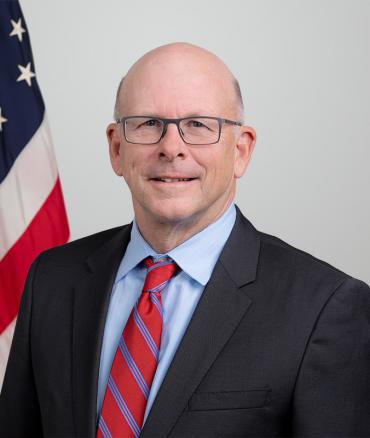
Jim Jones
In this new executive position, which reports directly to the FDA Commissioner, Jones leads the charge in setting and advancing priorities for a proposed, unified Human Foods Program (HFP), which includes food safety, chemical safety and nutrition activities. He has decision-making authority over all HFP entities, including resource allocation, risk-prioritization strategy, policy, major response activities involving human foods, and related Office of Regulatory Affairs activities. He currently oversees the leadership of the agency’s Center for Food Safety and Applied Nutrition and Office of Food Policy and Response until the proposed HFP reorganization is implemented. Jones came to the FDA with intimate knowledge of the foods program, having served on the Reagan-Udall Foundation’s Independent Expert PanelExternal Link Disclaimer that evaluated the program in 2022. He has decades of leadership experience and a track record of forging partnerships among diverse segments of stakeholders and achieving dynamic results to improve public health.
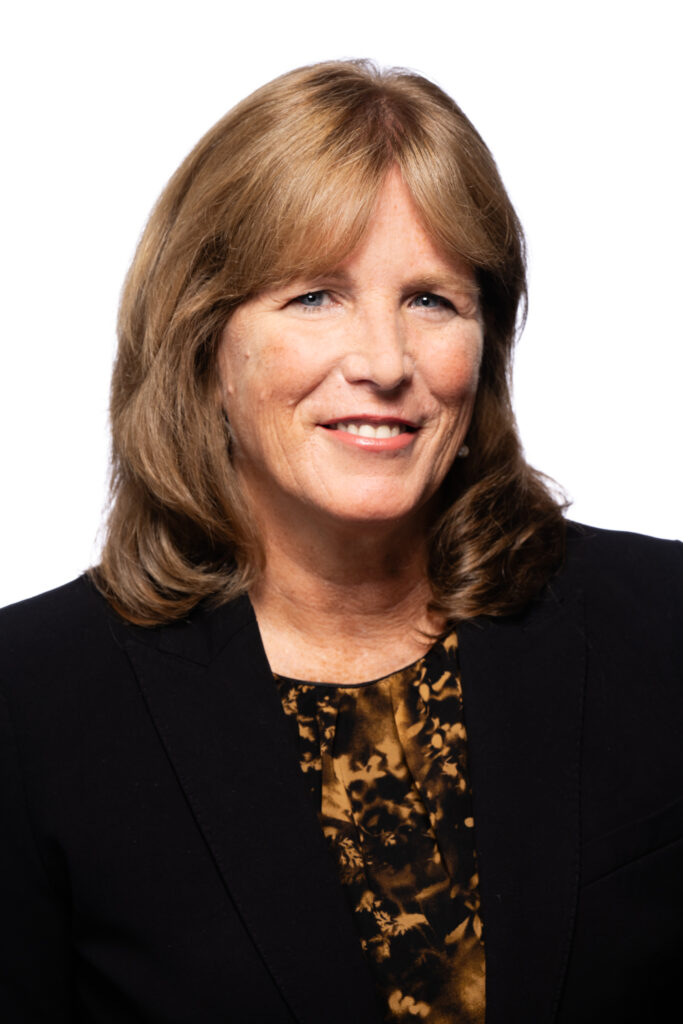
Roberta Wagner
Roberta Wagner is the Senior Vice President, Regulatory and Scientific Affairs for the International Dairy Foods Association.
Prior to IDFA, Roberta served as vice president of regulatory and technical affairs for the Consumer Brands Association, formerly the Grocery Manufacturers Association since 2019.
Wagner spent 33 years in public service, most recently as the assistant administrator of the Office of Policy and Program Development at the U.S. Department of Agriculture’s (USDA) Food Safety and Inspection Service (FSIS). Previously, Wagner served as the deputy assistant administrator for the Office of Field Operations at FSIS where she oversaw a workforce of 7,800 inspection program personnel, including consumer safety officers, public health veterinarians and food inspectors. Wagner also spent more than 25 years with the U.S. Food and Drug Administration (FDA), working in a variety of roles from analytical chemist to associate commissioner for Food Safety Modernization Act implementation.
NGO Perspectives and Priorities on Food Safety, FDA and the Food Industry
Join two leaders of the NGO community to hear their perspectives and priorities on food safety, FDA and the dairy and food industry.
Speakers: Brian Ronholm, Director of Food Policy, Consumer Reports
Scott Faber, Senior Vice President of Government Affairs, Environmental Working Group

Brian Ronholm
Brian Ronholm is the Director of Food Policy for Consumer Reports. He leads CR's advocacy efforts to advance a safe and healthy food system. Brian brings deep legislative and regulatory experience in food policy to CR. He also writes and speaks extensively on food policy issues, with a particular emphasis on emerging technologies, food safety modernization, and pending regulatory policies facing the food industry.
During his tenure as Deputy Under Secretary, Food Safety, at the U.S. Department of Agriculture (USDA), Brian provided leadership, management, and oversight of the Food Safety and Inspection Service (FSIS), the public health agency with more than 9,000 employees responsible for ensuring the safety of meat, poultry, catfish, and processed egg products.
In addition to overseeing FSIS, he chaired the U.S. Codex Policy Steering Committee, an interagency partnership that engages stakeholders in the advancement of science-based international food safety standards to facilitate fair trade, and served as Chair of the National Advisory Committee on Microbiological Criteria for Foods (NACMCF), which provides impartial scientific advice to federal agencies for use in developing integrated food safety systems.
He also served as Agriculture Appropriations Associate in the office of U.S. Rep. Rosa DeLauro of Connecticut, where he managed and coordinated activities involving key legislative initiatives for food and nutrition issues.
Prior to joining CR, Brian most recently served as Senior Director of Regulatory Affairs at Wilson Sonsini Goodrich and Rosati, and he served in the same senior position at Arent Fox LLP.
He serves as a part-time lecturer at Northeastern University in the College of Professional Studies, and he also sits on the board for the SBLA, a non-profit charitable organization for professionals working in sports whose goal is to provide children with the resources necessary to engage in unique sports experiences.
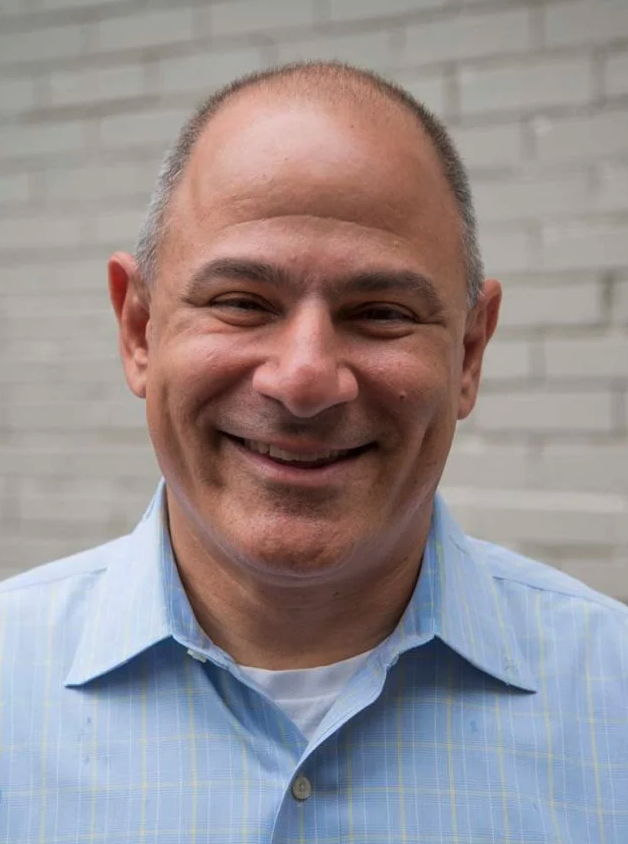
Scott Faber
Scott Faber leads EWG’s government affairs efforts, in which capacity he has frequently testified before Congress on food, farm, energy, water and chemical policy issues. Faber is an adjunct professor at Georgetown University Law Center. Faber is one of EWG’s top spokespeople and is a frequent source for journalists with national and regional media outlets. Faber has appeared on network and cable news programs and in documentary films, and he is regularly quoted in The Washington Post, The New York Times, Los Angeles Times, Associated Press, Politico and CNN.com, among many others.
The Debate Around Front-of-Pack Nutrition Labeling (FOPNL)
FDA continues to press forward with a mandatory FOPNL scheme, signaling its intent to propose a rule in the Fall of 2024 and continues consumer research while pushing back on industry questioning its legal authority. In this session, experts raise concerns about FDA’s legal authority, experiences with FOPNL in other nations, and what the food industry would need to do to adapt.
Speakers: Kris Sollid, RD, Senior Director of Nutrition Communications, International Food Information Council (IFIC)
Martin Hahn, Partner, Hogan Lovells
Michelle Matto, Associate Vice President, Regulatory Affairs and Nutrition, IDFA

Kris Sollid, RD
Kris Sollid, RD is a Registered Dietitian with a passion for improving nutrition science communications. As the Senior Director of Nutrition Communications at the International Food Information Council (IFIC), Kris leads IFIC’s nutrition team. In this role, Kris is integral to IFIC’s consumer research on food perceptions, beliefs and behaviors through its annual Food and Health Survey and other topic-specific consumer research projects, which he regularly shares with nutrition professionals on national and global platforms. Kris has authored and co-authored peer-reviewed publications of IFIC’s consumer research in the Journal of the Academy of Nutrition and Dietetics, Cereal Foods World and Nutrition Today.
Kris is an active member of the Academy of Nutrition and Dietetics. In addition to leading IFIC’s continuing professional education program through the Commission on Dietetic Registration, he recently served eight consecutive years (2013-2021) in leadership roles on the Board of Directors of DCMAND, the Academy’s District of Columbia Metro affiliate.
Kris has earned degrees from the University of Colorado, Boulder (BA in Geography) and the University of Maryland, College Park (BS in Dietetics).

Martin Hahn
Using his background in food technology and his comprehensive understanding of the laws governing the food industry, Martin Hahn helps clients navigate through the countless regulatory and business issues impacting the industry from farm to table.
He recognizes the demands clients face and finds innovative and creative solutions, particularly when responding to observations raised by regulators during inspections. Whether the issue involves obtaining the authorization of a new food or dietary ingredient, complying with manufacturing requirements, labeling or advertising, product recalls, or enforcement, Martin serves as an effective advisor and advocate.
Martin has handled almost every issue impacting the food industry. He has a comprehensive understanding of the laws affecting the labeling and advertising of foods, dietary supplements, infant formulas, medical foods, and foods for special dietary use. He helps anticipate new trends and develops the data needed to distinguish a client's products from others on the market. Martin uses his understanding of science and technology in the food industry to provide assistance in obtaining regulatory authorizations to market new food ingredients, food packaging materials, and dietary ingredients. He assists in responding to proposed regulations and draft guidance to keep clients informed on the latest trends in class action law suits to help anticipate new regulatory initiatives.
Martin grew up on a farm and worked in food processing plants before going to law school. His hands-on experience in the field and degree in food technology allow him to better understand the challenges his clients face in complying with the laws impacting food manufacturing. He understands Hazard Analysis Critical Control Point (HACCP) and the regulations under the Food Safety Modernization Act (FSMA).

Michelle Albee Matto, MPH, RDN
Michelle provides technical and regulatory leadership to advance IDFA’s nutrition and health advocacy, ensuring dairy’s role in federal nutrition programs and the Dietary Guidelines for Americans (DGAs). In addition, she delivers training on dairy standards and labeling, and provides guidance to IDFA members related to product labeling.
She has worked closely with IDFA over the years, serving on staff between 2002-2010, and then as founder and principal of AM Food & Nutrition consulting, where she worked closely with IDFA providing regulatory support on federal rulemaking and nutrition programs, led IDFA labeling training, and advised IDFA members on labeling requirements. Prior to 2002, Michelle worked at the Food Research and Action Center (FRAC) in Washington, D.C. She earned her bachelor’s degree in Nutrition at Russell Sage College in Troy, N.Y., and her Master of Public Health degree in Nutrition from the University of North Carolina-Chapel Hill. She is a member of the Academy of Nutrition and Dietetics and the American Society for Nutrition and is a past board member of the DC Chapters of both the Institute of Food Technologists and the Society for Nutrition Education.
Food Fights in the Courtroom – Annual Litigation Update
Food labeling decisions continue to be driven by litigation across the country and not FDA regulations. With each year, new court decisions help shed light on what consumers might reasonably expect from food companies. Hot topic issues include so-called “health halo” claims, claims about ingredients and nutrients, environmental claims, and more. In this session, Hogan Lovells Counsel Veronica Colas will share her expertise advising food companies on the current state of food labeling litigation, lessons your company can learn from these lawsuits, and how we might forecast the future of this area of litigation.
Speaker: Veronica Colas, Counsel, Hogan Lovells

Veronica Colas
Veronica Colas counsels clients on the regulations and policy issues affecting food companies from farm to table.
Using her keen awareness of today's class action litigation environment, Veronica helps develop new products, label claims, and advertising materials. She has a deep understanding of both current and forthcoming food labeling and production requirements ranging from nutrition and menu labeling, to the regulatory issues surrounding bioengineered foods and organic food production. As companies seek to communicate about the health, nutrition, or environmental benefits of their products, Veronica helps them navigate the regulatory landscape.
Veronica provides clear advice and practical solutions for compliance with labeling, advertising, and safety regulations from the Food and Drug Administration (FDA), U.S. Department of Agriculture, Consumer Product Safety Commission, and states. Veronica is a go-to on state food packaging laws, such as the California "recyclable" requirements and extended producer responsibility. She has significant experience in helping clients navigate regulatory enforcement challenges, such as recalls, Warning Letters, import detentions, and investigations by the Federal Trade Commission. Veronica works closely with trade associations and food companies to craft comments and develop strategies in response to public policy issues such as agency rulemaking and nutrition policy. She represents all segments of the food industry, including manufacturers, retailers, restaurants, and food service companies.
She is a regular speaker and contributor to industry publications, including providing training sessions to corporate clients on Food Law 101, food labeling and marketing, and claim substantiation.
Stop Foodborne Illness
Hear from Stop Foodborne Illness, a leading non-profit with diverse industry and trade association members that works collaboratively to provide resources targeted to small and medium-sized companies to help them develop and advance a strong food safety culture. In this session with Stop Foodborne Illness CEO, Mitzi Baum, hear about their work with industry members to assure safe food for all consumers. This includes working with FDA to modernize recall procedures and consumer communications to developing a free Food Safety Culture Toolkit that includes compelling videos of constituents that have faced foodborne illness directly.
Speaker: Mitzi Baum, CEO, Stop Foodborne Illness (STOP)
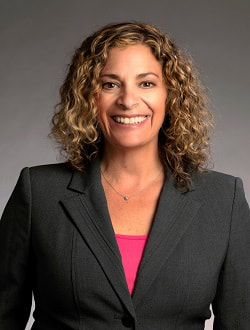
Mitzi Baum
As Chief Executive Officer, Mitzi Baum is focused on expanding the impact of Stop Foodborne Illness (STOP) by concentrating on STOP’s three strategic areas: families and individuals impacted by foodborne disease; company culture and practice; and food safety policy. By instituting a collaborative, consumer-centric operating model, STOP engages stakeholders across the food system to develop and advance solutions to food safety.
Prior to her tenure at STOP, Mitzi cultivated a 23-year career at Feeding America rising to the senior level position of managing director of food safety. Ms. Baum earned a Master of Science in Food Safety and a certificate in Food Law from Michigan State University. She received her Bachelor of Science degree from Bowling Green State University and has obtained certificates in Non-Profit Management from the University of Chicago, Quality Management from DePaul University, and Food Safety Management from Cornell University.
Mitzi is the 2021 Joseph Leiter Lecturer of the Medical Library Association and National Library of Medicine, an adjunct faculty for Michigan State University’s Online Food Safety Program, a certified seafood HACCP instructor, a PCQI, serves as the consumer representative on Council I for the Conference for Food Protection, and is a member of the National Restaurant Association’s Food Safety Advisory Council.
Stop Foodborne Illness is headquartered in Chicago, IL.
How do Foodborne Outbreak Response Activities and the Identification of Contributing Factors Translate to Prevention Strategies at the FDA?
We can all agree that preventing the recurrence of same type of foodborne outbreak repeatedly is the goal and critically important. Join FDA’s Dr. Stic Harris who will provide an overview of the structure and functions of the agency’s Coordinated Outbreak Response and Evaluation (CORE) Network and summarize findings from some of FDA’s more recent foodborne outbreak response activities - with a focus on dairy. Then learn how contributing factors identified through root cause investigations into foodborne outbreaks are translated to prevention strategies by FDA’s Office of Food Safety from Dr. Mark Moorman who leads that office.
Moderated by: Roberta Wagner, Senior Vice President, Regulatory and Scientific Affairs, International Dairy Foods Association
Speakers: Dr. Mark Moorman, Director, Office of Food Safety, Center for Food Safety and Applied Nutrition, FDA
Dr. Stic Harris, Director of the Coordinated Outbreak Response and Evaluation (CORE) Network, FDA

Mark Moorman, PhD
Mark Moorman is the Director of the Office of Food Safety at the Food and Drug Administration where he leads a team of professionals focused on improving the safety of our food supply. Prior to joining the FDA, Mark was the Senior Director of Global Scientific & Regulatory Affairs for the Kellogg Company in Battle Creek, MI with responsibilities for emerging food safety and nutrition technical and regulatory issues. Prior to joining the Kellogg Company in 1998, Mark spent 10 years with Silliker Laboratories as the Technical Director of Microbiology responsible for assisting clients with microbiological food safety and quality issues. Mark has his undergraduate and Ph.D. degrees from Michigan State University in Microbiology and Food Science.

Dr. Stic Harris
Stic Harris, DVM, MPH, joined the U.S. Food & Drug Administration in August 2017 as the new Director of the Coordinated Outbreak Response and Evaluation (CORE) Network. In this role, Dr. Harris will oversee FDA’s full-time staff dedicated to preventing, detecting, and investigating outbreaks related to human food, cosmetics, and dietary supplements.
Distinguishing himself as a leader in the world of outbreak response, Dr. Harris brings with him an invaluable mix of clinical and policy experience. Formerly with the Armed Forces Health Surveillance Branch (AFHSB), the central epidemiologic resource for the U.S. military, he was part of the Alert and Response Operations Team in the Integrated Biosurveillance division, where the work is focused on monitoring infectious diseases. Dr. Harris’ team was responsible for identifying, verifying, and delivering the latest information and assessments of outbreaks affecting the Department of Defense.

Roberta Wagner
Roberta Wagner is the Senior Vice President, Regulatory and Scientific Affairs for the International Dairy Foods Association.
Prior to IDFA, Roberta served as vice president of regulatory and technical affairs for the Consumer Brands Association, formerly the Grocery Manufacturers Association since 2019.
Wagner spent 33 years in public service, most recently as the assistant administrator of the Office of Policy and Program Development at the U.S. Department of Agriculture’s (USDA) Food Safety and Inspection Service (FSIS). Previously, Wagner served as the deputy assistant administrator for the Office of Field Operations at FSIS where she oversaw a workforce of 7,800 inspection program personnel, including consumer safety officers, public health veterinarians and food inspectors. Wagner also spent more than 25 years with the U.S. Food and Drug Administration (FDA), working in a variety of roles from analytical chemist to associate commissioner for Food Safety Modernization Act implementation.
What’s Next for Policy and Standard Setting at FDA and How will Industry Need to Adapt
With new leadership and rejuvenated purpose, what can the food industry expect to see from FDA in the future? In this session, participants will hear expert counsel’s thoughts on what’s on the horizon for policy and standard setting and how food companies can best adapt to changing global regulatory and legal mandates.
Speaker: Elizabeth Fawell, Partner, Hogan Lovells

Elizabeth B. Fawell
Successfully navigating the detailed and often complex regulatory issues confronting the food industry, Elizabeth Fawell helps companies understand both the rules and various risks involved to make the most informed and strategic decisions.
Elizabeth has worked with every segment of the food industry, including manufacturers, distributors, retailers, restaurants, and food service operators, as well as their trade associations.
Her work on behalf of food industry clients with the Food Safety Modernization Act (FSMA) since its inception and her understanding of Hazard Analysis Critical Control Point (HACCP) systems provides her with the experience and perspective needed to counsel clients on how to comply with new requirements under the law. Elizabeth is also a Preventive Controls Qualified Individual (PCQI) and has completed the FSPCA PCQI training.
Elizabeth understands how laws, regulations, and guidance documents are developed, interpreted, and enforced. Her extensive knowledge enables clients to prevent or respond to enforcement actions such as Warning Letters, Import Alerts, and agency investigations. She helps clients in determining whether an RFR report is necessary and whether a recall is warranted. If so, she helps manage the recall to minimize business impacts.
Elizabeth provides real-time advice during factory inspections, helps clients prepare 483 responses, and drafts inspection manuals. She assists clients in lawfully and creatively promoting their products; such as the development of labels, claims, and website and promotional campaigns. Elizabeth also supports clients in advertising disputes and with responses to FTC and Attorney General investigations.
Elizabeth helps clients stay informed of and ahead of public policy issues and develops strategies for effective advocacy before regulators.
Updates from FDA’s Associate Commissioner for Regulatory Affairs
Join Associate Commissioner Michael Rogers to learn how FDA’s Office of Regulatory Affairs (ORA) is refocusing its activities on its core mission areas of inspections, investigations and imports; efforts underway for the largest reorganization of ORA in decades; further specialization of the human foods inspectorate and new approaches under consideration for training inspectors; as well as a discussion of trends in noncompliance and recalls in the foods space and initiatives to modernize food facility inspection approaches.
Moderated by: Roberta Wagner, Senior Vice President, Regulatory and Scientific Affairs, International Dairy Foods Association
Speaker: Michael Rogers, Associate Commissioner for Regulatory Affairs, FDA Office of Regulatory Affairs

Roberta Wagner
Roberta Wagner is the Senior Vice President, Regulatory and Scientific Affairs for the International Dairy Foods Association.
Prior to IDFA, Roberta served as vice president of regulatory and technical affairs for the Consumer Brands Association, formerly the Grocery Manufacturers Association since 2019.
Wagner spent 33 years in public service, most recently as the assistant administrator of the Office of Policy and Program Development at the U.S. Department of Agriculture’s (USDA) Food Safety and Inspection Service (FSIS). Previously, Wagner served as the deputy assistant administrator for the Office of Field Operations at FSIS where she oversaw a workforce of 7,800 inspection program personnel, including consumer safety officers, public health veterinarians and food inspectors. Wagner also spent more than 25 years with the U.S. Food and Drug Administration (FDA), working in a variety of roles from analytical chemist to associate commissioner for Food Safety Modernization Act implementation.
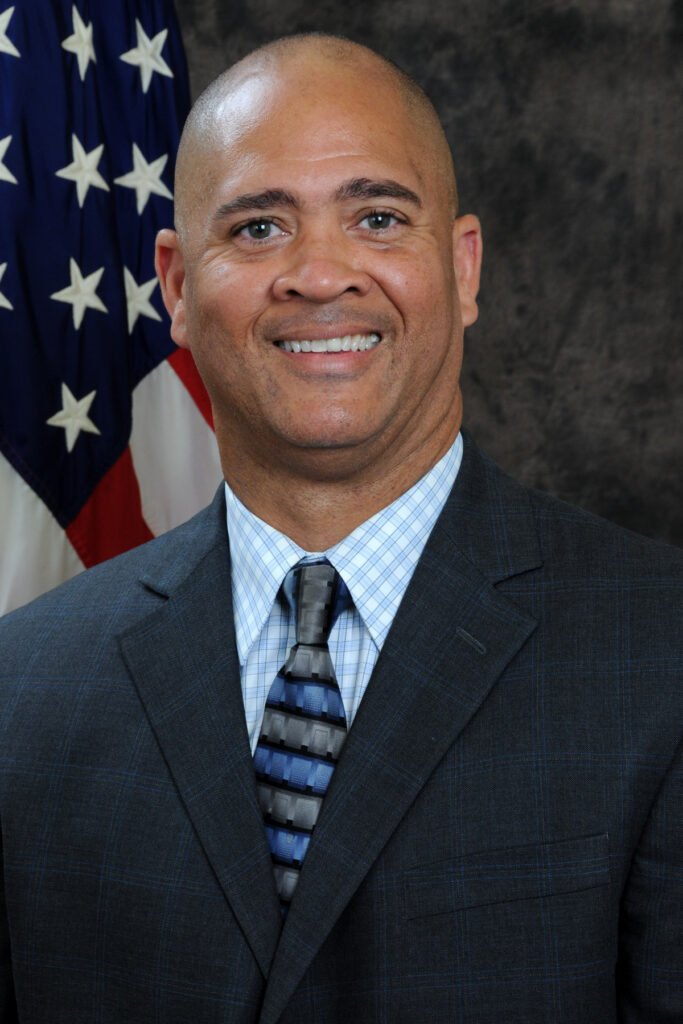
Michael Rogers
Michael C. Rogers is Associate Commissioner for Regulatory Affairs (ACRA) in the FDA’s Office of Regulatory Affairs (ORA). In this role, he oversees inspections, compliance, enforcement, field laboratory operations, import operations, and strategic planning, among other areas for all FDA regulatory programs.
Throughout his FDA career, Mr. Rogers has led on numerous national and international investigations, public health related emergencies, as well as natural disaster recovery efforts.
Mr. Rogers served as Assistant Commissioner for Human and Animal Food Operations in ORA, focusing on inspections, investigations, and compliance-related issues to keep the American food supply safe. Previously, he was senior advisor for medical products, where he was responsible for critical regulatory issues and policies, setting strategic direction for new regulatory and technological developments to critical issues. He also provided strategic guidance related to domestic and foreign inspections.
Prior to his role as senior advisor, Mr. Rogers served as regional director in the FDA’s Latin America regional office, where he was stationed in Costa Rica. He was responsible for the FDA’s oversight of products produced in 44 countries and territories in Latin America and the Caribbean for the U.S. market, a region that was responsible for 30% of FDA-regulated imported products. Mr. Rogers also worked with foreign governments to develop international agreements.
Speakers

Michelle Albee Matto, MPH, RDN
Associate Vice President, Regulatory Affairs and Nutrition

Michelle Albee Matto, MPH, RDN
Michelle provides technical and regulatory leadership to advance IDFA’s nutrition and health advocacy, ensuring dairy’s role in federal nutrition programs and the Dietary Guidelines for Americans (DGAs). In addition, she delivers training on dairy standards and labeling, and provides guidance to IDFA members related to product labeling.
She has worked closely with IDFA over the years, serving on staff between 2002-2010, and then as founder and principal of AM Food & Nutrition consulting, where she worked closely with IDFA providing regulatory support on federal rulemaking and nutrition programs, led IDFA labeling training, and advised IDFA members on labeling requirements. Prior to 2002, Michelle worked at the Food Research and Action Center (FRAC) in Washington, D.C. She earned her bachelor’s degree in Nutrition at Russell Sage College in Troy, N.Y., and her Master of Public Health degree in Nutrition from the University of North Carolina-Chapel Hill. She is a member of the Academy of Nutrition and Dietetics and the American Society for Nutrition and is a past board member of the DC Chapters of both the Institute of Food Technologists and the Society for Nutrition Education.

Mitzi Baum
CEO, Stop Foodborne Illness (STOP)

Mitzi Baum
As Chief Executive Officer, Mitzi Baum is focused on expanding the impact of Stop Foodborne Illness (STOP) by concentrating on STOP’s three strategic areas: families and individuals impacted by foodborne disease; company culture and practice; and food safety policy. By instituting a collaborative, consumer-centric operating model, STOP engages stakeholders across the food system to develop and advance solutions to food safety.
Prior to her tenure at STOP, Mitzi cultivated a 23-year career at Feeding America rising to the senior level position of managing director of food safety. Ms. Baum earned a Master of Science in Food Safety and a certificate in Food Law from Michigan State University. She received her Bachelor of Science degree from Bowling Green State University and has obtained certificates in Non-Profit Management from the University of Chicago, Quality Management from DePaul University, and Food Safety Management from Cornell University.
Mitzi is the 2021 Joseph Leiter Lecturer of the Medical Library Association and National Library of Medicine, an adjunct faculty for Michigan State University’s Online Food Safety Program, a certified seafood HACCP instructor, a PCQI, serves as the consumer representative on Council I for the Conference for Food Protection, and is a member of the National Restaurant Association’s Food Safety Advisory Council.
Stop Foodborne Illness is headquartered in Chicago, IL.

Veronica Colas
Counsel | Hogan Lovells

Veronica Colas
Veronica Colas counsels clients on the regulations and policy issues affecting food companies from farm to table.
Using her keen awareness of today's class action litigation environment, Veronica helps develop new products, label claims, and advertising materials. She has a deep understanding of both current and forthcoming food labeling and production requirements ranging from nutrition and menu labeling, to the regulatory issues surrounding bioengineered foods and organic food production. As companies seek to communicate about the health, nutrition, or environmental benefits of their products, Veronica helps them navigate the regulatory landscape.
Veronica provides clear advice and practical solutions for compliance with labeling, advertising, and safety regulations from the Food and Drug Administration (FDA), U.S. Department of Agriculture, Consumer Product Safety Commission, and states. Veronica is a go-to on state food packaging laws, such as the California "recyclable" requirements and extended producer responsibility. She has significant experience in helping clients navigate regulatory enforcement challenges, such as recalls, Warning Letters, import detentions, and investigations by the Federal Trade Commission. Veronica works closely with trade associations and food companies to craft comments and develop strategies in response to public policy issues such as agency rulemaking and nutrition policy. She represents all segments of the food industry, including manufacturers, retailers, restaurants, and food service companies.
She is a regular speaker and contributor to industry publications, including providing training sessions to corporate clients on Food Law 101, food labeling and marketing, and claim substantiation.

Scott Faber
Senior Vice President, Government Affairs, Environmental Working Group

Scott Faber
Scott Faber leads EWG’s government affairs efforts, in which capacity he has frequently testified before Congress on food, farm, energy, water and chemical policy issues. Faber is an adjunct professor at Georgetown University Law Center. Faber is one of EWG’s top spokespeople and is a frequent source for journalists with national and regional media outlets. Faber has appeared on network and cable news programs and in documentary films, and he is regularly quoted in The Washington Post, The New York Times, Los Angeles Times, Associated Press, Politico and CNN.com, among many others.

Elizabeth B. Fawell
Partner | Hogan Lovells

Elizabeth B. Fawell
Successfully navigating the detailed and often complex regulatory issues confronting the food industry, Elizabeth Fawell helps companies understand both the rules and various risks involved to make the most informed and strategic decisions.
Elizabeth has worked with every segment of the food industry, including manufacturers, distributors, retailers, restaurants, and food service operators, as well as their trade associations.
Her work on behalf of food industry clients with the Food Safety Modernization Act (FSMA) since its inception and her understanding of Hazard Analysis Critical Control Point (HACCP) systems provides her with the experience and perspective needed to counsel clients on how to comply with new requirements under the law. Elizabeth is also a Preventive Controls Qualified Individual (PCQI) and has completed the FSPCA PCQI training.
Elizabeth understands how laws, regulations, and guidance documents are developed, interpreted, and enforced. Her extensive knowledge enables clients to prevent or respond to enforcement actions such as Warning Letters, Import Alerts, and agency investigations. She helps clients in determining whether an RFR report is necessary and whether a recall is warranted. If so, she helps manage the recall to minimize business impacts.
Elizabeth provides real-time advice during factory inspections, helps clients prepare 483 responses, and drafts inspection manuals. She assists clients in lawfully and creatively promoting their products; such as the development of labels, claims, and website and promotional campaigns. Elizabeth also supports clients in advertising disputes and with responses to FTC and Attorney General investigations.
Elizabeth helps clients stay informed of and ahead of public policy issues and develops strategies for effective advocacy before regulators.

Martin Hahn
Partner | Hogan Lovells

Martin Hahn
Using his background in food technology and his comprehensive understanding of the laws governing the food industry, Martin Hahn helps clients navigate through the countless regulatory and business issues impacting the industry from farm to table.
He recognizes the demands clients face and finds innovative and creative solutions, particularly when responding to observations raised by regulators during inspections. Whether the issue involves obtaining the authorization of a new food or dietary ingredient, complying with manufacturing requirements, labeling or advertising, product recalls, or enforcement, Martin serves as an effective advisor and advocate.
Martin has handled almost every issue impacting the food industry. He has a comprehensive understanding of the laws affecting the labeling and advertising of foods, dietary supplements, infant formulas, medical foods, and foods for special dietary use. He helps anticipate new trends and develops the data needed to distinguish a client's products from others on the market. Martin uses his understanding of science and technology in the food industry to provide assistance in obtaining regulatory authorizations to market new food ingredients, food packaging materials, and dietary ingredients. He assists in responding to proposed regulations and draft guidance to keep clients informed on the latest trends in class action law suits to help anticipate new regulatory initiatives.
Martin grew up on a farm and worked in food processing plants before going to law school. His hands-on experience in the field and degree in food technology allow him to better understand the challenges his clients face in complying with the laws impacting food manufacturing. He understands Hazard Analysis Critical Control Point (HACCP) and the regulations under the Food Safety Modernization Act (FSMA).

Dr. Stic Harris
Director of the Coordinated Outbreak Response and Evaluation (CORE) Network, FDA

Dr. Stic Harris
Stic Harris, DVM, MPH, joined the U.S. Food & Drug Administration in August 2017 as the new Director of the Coordinated Outbreak Response and Evaluation (CORE) Network. In this role, Dr. Harris will oversee FDA’s full-time staff dedicated to preventing, detecting, and investigating outbreaks related to human food, cosmetics, and dietary supplements.
Distinguishing himself as a leader in the world of outbreak response, Dr. Harris brings with him an invaluable mix of clinical and policy experience. Formerly with the Armed Forces Health Surveillance Branch (AFHSB), the central epidemiologic resource for the U.S. military, he was part of the Alert and Response Operations Team in the Integrated Biosurveillance division, where the work is focused on monitoring infectious diseases. Dr. Harris’ team was responsible for identifying, verifying, and delivering the latest information and assessments of outbreaks affecting the Department of Defense.

Jim Jones
Deputy Commissioner, Human Foods, U.S. Food and Drug Administration

Jim Jones
In this new executive position, which reports directly to the FDA Commissioner, Jones leads the charge in setting and advancing priorities for a proposed, unified Human Foods Program (HFP), which includes food safety, chemical safety and nutrition activities. He has decision-making authority over all HFP entities, including resource allocation, risk-prioritization strategy, policy, major response activities involving human foods, and related Office of Regulatory Affairs activities. He currently oversees the leadership of the agency’s Center for Food Safety and Applied Nutrition and Office of Food Policy and Response until the proposed HFP reorganization is implemented. Jones came to the FDA with intimate knowledge of the foods program, having served on the Reagan-Udall Foundation’s Independent Expert PanelExternal Link Disclaimer that evaluated the program in 2022. He has decades of leadership experience and a track record of forging partnerships among diverse segments of stakeholders and achieving dynamic results to improve public health.

Mark Moorman, PhD
Director of the Office of Food Safety, CFSAN, U.S. Food & Drug Administration

Mark Moorman, PhD
Mark Moorman is the Director of the Office of Food Safety at the Food and Drug Administration where he leads a team of professionals focused on improving the safety of our food supply. Prior to joining the FDA, Mark was the Senior Director of Global Scientific & Regulatory Affairs for the Kellogg Company in Battle Creek, MI with responsibilities for emerging food safety and nutrition technical and regulatory issues. Prior to joining the Kellogg Company in 1998, Mark spent 10 years with Silliker Laboratories as the Technical Director of Microbiology responsible for assisting clients with microbiological food safety and quality issues. Mark has his undergraduate and Ph.D. degrees from Michigan State University in Microbiology and Food Science.

Danielle Quist
Vice President, Regulatory Affairs and Counsel

Danielle Quist
Danielle Quist leads IDFA’s work on environment, sustainability, packaging, worker safety, financial regulation, and environmental compliance, where she advocates industry positions and monitors regulatory issues impacting dairy processors. She has more than 20 years of legal experience and serves as IDFA’s legal counsel.
Before coming to IDFA, Quist worked as senior counsel for public policy at the American Farm Bureau Federation (AFBF), where she co-led AFBF’s legal advocacy program, advised lobbyists on policy matters, and lobbied federal agencies on behalf of farmers and ranchers for almost 14 years. Before that, Quist worked on Capitol Hill as a counsel on the House Subcommittee on Energy Policy, Natural Resources and Regulatory Affairs for former Congressman Doug Ose (CA). Previously, she was an associate at Howrey Simon Arnold & White, LLP, and served as a law clerk to Judge Eugene Sullivan of the U.S. Court of Appeals for the Armed Forces.
Quist earned her Juris Doctor from Columbia Law School and her Bachelor of the Arts in Political Science from Columbia College of Columbia University in New York City. She is a member of the D.C. and New York Bars. Originally from southern California and New Mexico, she speaks Spanish.

Michael Rogers
Associate Commissioner for Regulatory Affairs, FDA’s Office of Regulatory Affairs

Michael Rogers
Michael C. Rogers is Associate Commissioner for Regulatory Affairs (ACRA) in the FDA’s Office of Regulatory Affairs (ORA). In this role, he oversees inspections, compliance, enforcement, field laboratory operations, import operations, and strategic planning, among other areas for all FDA regulatory programs.
Throughout his FDA career, Mr. Rogers has led on numerous national and international investigations, public health related emergencies, as well as natural disaster recovery efforts.
Mr. Rogers served as Assistant Commissioner for Human and Animal Food Operations in ORA, focusing on inspections, investigations, and compliance-related issues to keep the American food supply safe. Previously, he was senior advisor for medical products, where he was responsible for critical regulatory issues and policies, setting strategic direction for new regulatory and technological developments to critical issues. He also provided strategic guidance related to domestic and foreign inspections.
Prior to his role as senior advisor, Mr. Rogers served as regional director in the FDA’s Latin America regional office, where he was stationed in Costa Rica. He was responsible for the FDA’s oversight of products produced in 44 countries and territories in Latin America and the Caribbean for the U.S. market, a region that was responsible for 30% of FDA-regulated imported products. Mr. Rogers also worked with foreign governments to develop international agreements.

Brian Ronholm
Director of Food Policy, Consumer Reports

Brian Ronholm
Brian Ronholm is the Director of Food Policy for Consumer Reports. He leads CR's advocacy efforts to advance a safe and healthy food system. Brian brings deep legislative and regulatory experience in food policy to CR. He also writes and speaks extensively on food policy issues, with a particular emphasis on emerging technologies, food safety modernization, and pending regulatory policies facing the food industry.
During his tenure as Deputy Under Secretary, Food Safety, at the U.S. Department of Agriculture (USDA), Brian provided leadership, management, and oversight of the Food Safety and Inspection Service (FSIS), the public health agency with more than 9,000 employees responsible for ensuring the safety of meat, poultry, catfish, and processed egg products.
In addition to overseeing FSIS, he chaired the U.S. Codex Policy Steering Committee, an interagency partnership that engages stakeholders in the advancement of science-based international food safety standards to facilitate fair trade, and served as Chair of the National Advisory Committee on Microbiological Criteria for Foods (NACMCF), which provides impartial scientific advice to federal agencies for use in developing integrated food safety systems.
He also served as Agriculture Appropriations Associate in the office of U.S. Rep. Rosa DeLauro of Connecticut, where he managed and coordinated activities involving key legislative initiatives for food and nutrition issues.
Prior to joining CR, Brian most recently served as Senior Director of Regulatory Affairs at Wilson Sonsini Goodrich and Rosati, and he served in the same senior position at Arent Fox LLP.
He serves as a part-time lecturer at Northeastern University in the College of Professional Studies, and he also sits on the board for the SBLA, a non-profit charitable organization for professionals working in sports whose goal is to provide children with the resources necessary to engage in unique sports experiences.

Kris Sollid, RD
Senior Director of Nutrition Communications | International Food Information Council

Kris Sollid, RD
Kris Sollid, RD is a Registered Dietitian with a passion for improving nutrition science communications. As the Senior Director of Nutrition Communications at the International Food Information Council (IFIC), Kris leads IFIC’s nutrition team. In this role, Kris is integral to IFIC’s consumer research on food perceptions, beliefs and behaviors through its annual Food and Health Survey and other topic-specific consumer research projects, which he regularly shares with nutrition professionals on national and global platforms. Kris has authored and co-authored peer-reviewed publications of IFIC’s consumer research in the Journal of the Academy of Nutrition and Dietetics, Cereal Foods World and Nutrition Today.
Kris is an active member of the Academy of Nutrition and Dietetics. In addition to leading IFIC’s continuing professional education program through the Commission on Dietetic Registration, he recently served eight consecutive years (2013-2021) in leadership roles on the Board of Directors of DCMAND, the Academy’s District of Columbia Metro affiliate.
Kris has earned degrees from the University of Colorado, Boulder (BA in Geography) and the University of Maryland, College Park (BS in Dietetics).

Roberta Wagner
Senior Vice President, Regulatory and Scientific Affairs

Roberta Wagner
Roberta Wagner is the Senior Vice President, Regulatory and Scientific Affairs for the International Dairy Foods Association.
Prior to IDFA, Roberta served as vice president of regulatory and technical affairs for the Consumer Brands Association, formerly the Grocery Manufacturers Association since 2019.
Wagner spent 33 years in public service, most recently as the assistant administrator of the Office of Policy and Program Development at the U.S. Department of Agriculture’s (USDA) Food Safety and Inspection Service (FSIS). Previously, Wagner served as the deputy assistant administrator for the Office of Field Operations at FSIS where she oversaw a workforce of 7,800 inspection program personnel, including consumer safety officers, public health veterinarians and food inspectors. Wagner also spent more than 25 years with the U.S. Food and Drug Administration (FDA), working in a variety of roles from analytical chemist to associate commissioner for Food Safety Modernization Act implementation.
Registration fees are based on your company's IDFA membership status. For more information about membership, please email membership@idfa.org.
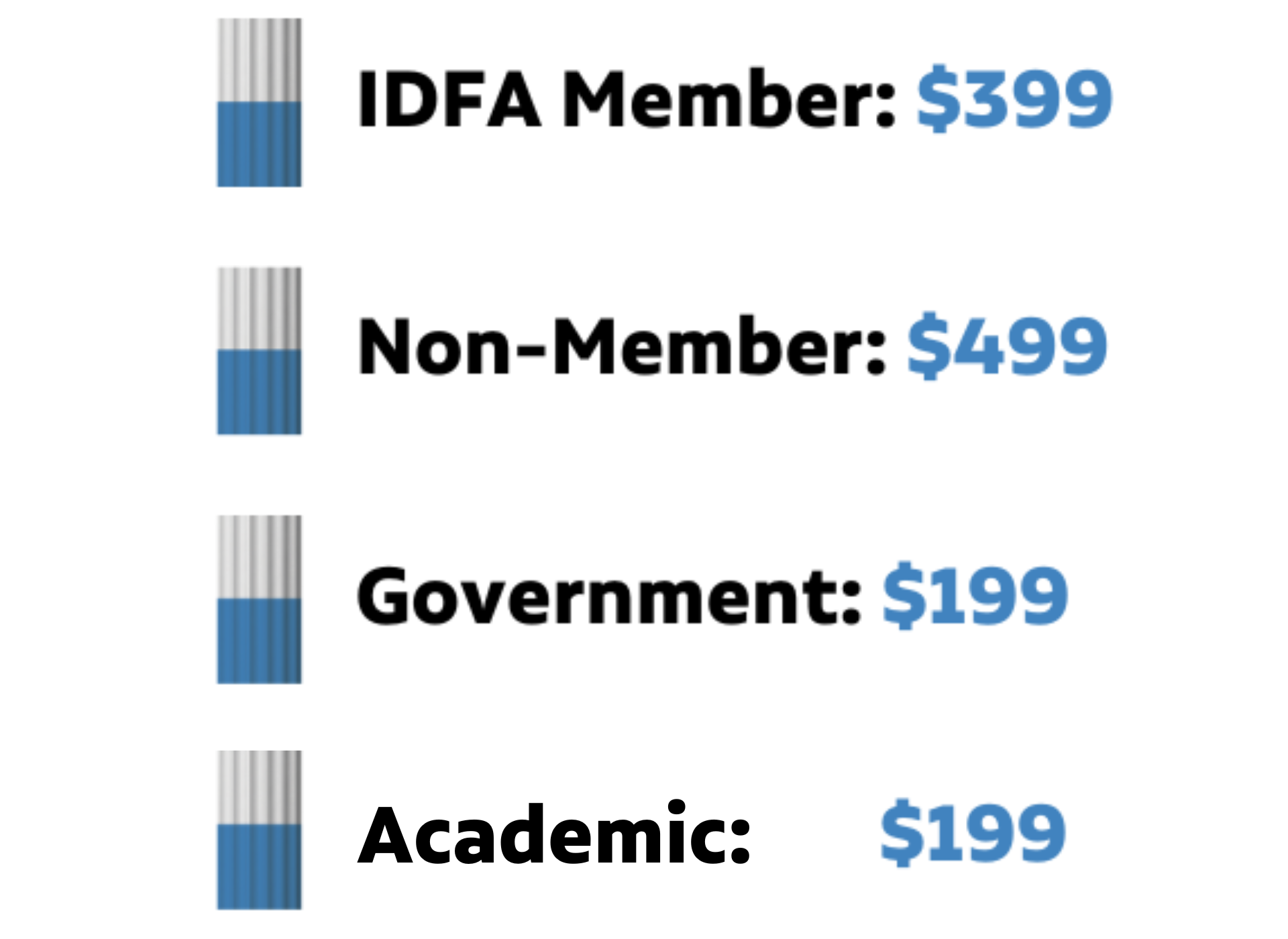
Registration is non-transferable from one company to another; however substitutions within companies are welcome at any time. Please email registrar@idfa.org if you would like to make a registration substitution.
Registration Cancellation Policy
Registration cancellations received in writing will be accepted prior to June 30, 2024 for a full refund. Your registration fee is non-refundable after June 30, 2024. Substitutions may be made without penalty. All cancellations and substitutions must be received in writing at registrar@idfa.org.
Questions: If you have questions or need assistance with the registration process, please contact IDFA at (202) 737-4332 or registrar@idfa.org.
Sponsors
IDFA’s Regulatory RoundUP provides the opportunity for dairy professionals to hear firsthand from the decision-makers and the officials who have direct responsibility for the rules that affect dairy plants, products and personnel. The conference will help dairy professionals better understand the intent behind federal regulations, the parameters for compliance and how best to engage in the process to shape pending regulations. Each level of sponsorship offers opportunities to build awareness of your brand, promote your products and services and engage with colleagues, industry insiders and potential partners.

Please contact membership@idfa for more information.


